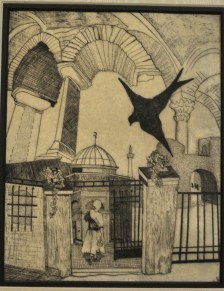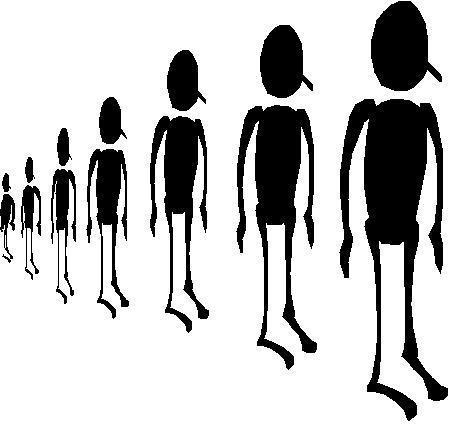Pat Bertram's Blog, page 233
May 28, 2013
Laziness, Catness, and Patness
In an effort to add spontaneity, color and vitality to my life, I went to the county fair. Just walked around, ate giant onion rings and funnel cake, rode the Ferris wheel. (Could ride one of those all day. Maybe next time I’ll get a wristband for unlimited rides and just go round and round and round. I wonder if that would wind my life into a higher gear or maybe wind me back to a simpler time?)
I saw a white tiger, visiting from the local zoo, but as much as I would have liked to admire the poor thing, I couldn’t bear to see it in that cage. (Of course, I’d hate even more to see the thing out of the cage, stalking me!) As I passed the cage, I heard the handler tell the gathering crowd that cats were some of the laziest creatures in the world. Huh? Lazy? The poor cat was in a cage, singing for its supper. Okay, so it wasn’t singing, it was yawning, but still, it was the primary advertisement for the zoo, so it was working as hard as the man maligning it. Besides, laziness is a human judgment. A cat can only be a cat. Its nature is to take it easy until it is time not to take it easy. That is not laziness. That is catness.
And anyway, who’s to say laziness is wrong? Most of us have been raised with a work ethic that is almost religious, and who is to say that is the right way? I am not advocating living off other people or shirking one’s responsibilities, but if you’ve worked hard enough to pay your bills with a bit set aside for emergencies, why is it lazy not to put forth more effort?
Years ago, I did the billing for a law office. Worked one week a month. In that one week, earning just a dollar or two above minimum wage, I made enough for all my living expenses, paid for the upkeep of my car, went out to eat when I felt like it. (It was a simpler time, of course, and my needs were simpler than most people’s.) The rest of the time I walked, read, wrote snippets of poetry, and did whatever I felt like. I still remember the looks of incomprehension and disdain I would get from people when they found out what I did. It wasn’t the week I worked for the lawyers that concerned them but the three weeks I didn’t. They couldn’t understand why I didn’t feel the need to work, and they couldn’t understand how I managed to fill all those non-working hours.
Maybe that lifestyle wasn’t laziness, either. Maybe it was Patness.
But, back to the fair . . .
The excursion did what I wanted — gave me something different to eat and do and think. Not bad a bad exchange for a few dollars. And I did it mostly on the spur of the moment, which is one of the things I am trying to relearn — doing things without planning. I woke up with the idea of going to the fair, and as soon as it opened, I went.
Maybe next year I’ll see you at the fair! We’ll meet by the Ferris wheel . . .
***
Pat Bertram is the author of the suspense novels Light Bringer, More Deaths Than One, A Spark of Heavenly Fire, and Daughter Am I. Bertram is also the author of Grief: The Great Yearning, “an exquisite book, wrenching to read, and at the same time full of profound truths.” Follow Pat on Google+. Like Pat on Facebook.
Tagged: are cats lazy, county fair, Ferris wheel, laziness, work ethic


May 27, 2013
Fishing For Life
Today is the 3 and 1/6-year anniversary of my life mate/soul mate’s death, and I’m still sad, still missing the spark to get my life going again. For thirty-four years, he was my spark — everything was so much more vibrant when he was in my life — and without something to spark my interest again, my life will continue to feel sad and flat.
A few days ago, in Dreaming My Life into Being, I wrote about my plans to go fishing for life. Well, today, I went. (The second part of that plan was to turn off my computer for a day, and as you can see, I didn’t do that, but following through on half a plan is better than doing nothing, right?)
Today’s fishing trip wasn’t a major journey by any means, just a long hike through the desert on a quest to find the trail to the top of Bell Mountain. I’d climbed halfway one day, but gave up when the trail petered out to 60-degree angle. There is no way I could have climbed that sort of slope with only my tennis shoe-clad feet and bare hands — who am I trying to kid; there is no way I could ever have climbed that slope — so I turned around and came back. (Slid down halfway, I’m sure, though I don’t remember. It was in the midst of the worst of my grief, and there are blank spots of pain in my memory.)

Bell Mountain
I’d recently read online that there is a trail to the top, though it’s on the other side of the mountain, so my quest today was to make my way to the other side and find the trail. Again, I had to turn back. I’d walked for two hours, and perhaps another two hours would have taken me around to the trailhead, but then, I’d have been too exhausted to make my way back. So once again, the mountain defeated me.

The way back.
Just because one goes on a fishing trip doesn’t mean you’ll get what you went for, but still, it was a lovely day in the sun with just enough wind to keep me from dying of the heat. So I did catch something — a bit of life.
I also caught a thought. We talk about life being a journey, but it’s always a forward motion or maybe even sideways. No matter how far we go, we continue on from there. Unlike other physical journeys, such as a hike, we don’t have to return to home base. So we can give it all we have without needing to keep anything in reserve for the return trip.
I hope I remember that when next I feel as if I can’t continue my life’s journey.
***
Pat Bertram is the author of the suspense novels Light Bringer, More Deaths Than One, A Spark of Heavenly Fire, and Daughter Am I. Bertram is also the author of Grief: The Great Yearning, “an exquisite book, wrenching to read, and at the same time full of profound truths.” Follow Pat on Google+. Like Pat on Facebook.
Tagged: Bell Mountain, desert hike, fishing for life, giving life all we have, grief at three years, life's journey


May 26, 2013
Big Brother of the Publishing World
Lots of buzz going around about Amazon lately. They bought Goodreads, the readers social networking site. Stephen King has refused to let his latest book be turned into an ebook. Amazon is supposedly offering a refund to anyone who bought Jaime McGuire’s book now that she is going with a traditional publisher (the refund is at her expense of course). Amazon is trying to corner the new domain market for things such as dot books (.books). Amazon has acquired a patent for a means to sell “used” ebooks. Amazon and Warner are teaming up to create a fan fiction platform so fans can make money off their derivative fiction. And on and on and on.
I don’t know what of that is true. Some, of course, maybe even all of it. But the overlying truth is that Amazon is the largest retailer on the planet, and they s eem to have no plans to curtail their expansion. (People hate Walmart. Why don’t they hate Amazon? I’ve never been able to figure that out. Maybe because Walmart has competition so people can afford to hate Walmart but Amazon is a force beyond reckoning? Or because Walmart has salespeople we see where Amazon’s employees are hidden behind computer screeens?)
eem to have no plans to curtail their expansion. (People hate Walmart. Why don’t they hate Amazon? I’ve never been able to figure that out. Maybe because Walmart has competition so people can afford to hate Walmart but Amazon is a force beyond reckoning? Or because Walmart has salespeople we see where Amazon’s employees are hidden behind computer screeens?)
As the world’s largest retailer, Amazon has become the controlling partner in the publishing industry, having a say in almost every facet of the business.
Major publishers fight Amazon and bow to them at the same time since their books are sold in great numbers on the site.
Small presses need Amazon, both its Create Space printing arm and its ability to reach readers.
Self-publishers love Amazon because it allows them to “publish” without ever having to do the work of actually publishing their book. (They compare themselves to Dickens and Grisham, though both those men published their books and peddled them on their own without the help of a super-giant monolithic business.)
People think of Amazon as a sales platform, similar to a blog platform, when Amazon is no such thing. They are a retailer, taking the works that others have created, and selling them (or even giving them away). Because people don’t understand the business of Amazon (the business of Amazon is Amazon) they tend to think that it is a service, and when Amazon flexes its considerable financial muscle, these people start complaining.
My publisher uses Amazon, of course. In this book climate, it’s suicidal not to. And as long as my publisher is willing to publish my books, that’s the way things will be, but if they ever turn me loose, I have no intention of republishing on Amazon. I’m not even sure I’d turn my books into ebooks. I might truly self-publish via Crate Space as I’ve heard it called — pay to have the books printed up — and then . . . well, no point in getting ahead of myself. I have a publisher for now, and maybe forever.
A friend, however, is planning on taking her ebook rights back from her publisher since she is convinced she can do a better job on her own, and perhaps she might. At the moment, Amazon seems to be favoring self-published authors, and yet, what Amazon gives, Amazon can take away.
I’ll leave you with the same advice I gave her: be careful. You might be fine, but just be aware that Amazon/Kindle isn’t the sinecure it sometimes seems.
***
Pat Bertram is the author of the suspense novels Light Bringer, More Deaths Than One, A Spark of Heavenly Fire, and Daughter Am I. Bertram is also the author of Grief: The Great Yearning, “an exquisite book, wrenching to read, and at the same time full of profound truths.” Follow Pat on Google+. Like Pat on Facebook.
Tagged: Amazon, Amazon and Goodreads, Amazon buzz, Kindle, largest retailer, selling books on Amazon


May 25, 2013
Dead Man Walking
In the movie The Nature of the Beast, Eric Roberts tells Lance Henriksen that “dead man walking” refers to an inmate on death row when he’s on the move. Anytime they take the prisoner anywhere, they make sure all the other inmates are locked down and that the condemned man is accompanied by several armed guards. As they walk, they announce, “Dead man walking,” because this is the most dangerous sort of person in the world. He can do anything to anyone without any repercussions. He has nothing to lose. He’s already going to die, so what can they do, kill him twice?
 Listening to that exchange, it struck me that we are all dead men walking. We are all on death row, condemned to die, just waiting for the day when life executes us.
Listening to that exchange, it struck me that we are all dead men walking. We are all on death row, condemned to die, just waiting for the day when life executes us.
When my grief was at its worst, a bereft friend who was also struggling for reasons to live told me about a woman who had lost everyone she had ever loved, was now alone in her old age, but was the most joyful person my friend had ever met. We marveled at that because it seemed incomprehensible to us, but perhaps the woman knew something we didn’t. Perhaps she knew that we are all dead men walking, the penalty of death has already been handed out, and so we have nothing left to do but live each moment until the sentence is carried out. Maybe the truth is that within the prisons of our aging (and sometimes disabled) bodies, within the prisons of our responsibilities and financial burdens and fears, we can do whatever we want.
Of course, most of us have no interest in killing, robbing, or doing anything that will land us in the slammer; our desires are more socially acceptable and carry fewer penalties. And perhaps it’s not even a matter of doing what we want, but simply living each day as it comes and being open to whatever happens.
A woman who lost her husband many years ago recently told me that things will get better in ways I never imagined. She said she believes that we are all blessed and will know joy to the degree that we have felt sorrow.
Perhaps that, too, is a lesson the old woman learned, and now she is experiencing that joy. Maybe someday we all will. If nothing else, it’s something to believe in, that despite (or because of) our sentence of death, we will be blessed with unimaginable joy.
***
Pat Bertram is the author of the suspense novels Light Bringer, More Deaths Than One, A Spark of Heavenly Fire, and Daughter Am I. Bertram is also the author of Grief: The Great Yearning, “an exquisite book, wrenching to read, and at the same time full of profound truths.” Follow Pat on Google+. Like Pat on Facebook.
Tagged: dead man walking, Eric Roberts, finding joy despite loss, joy and sorrow, Lance Henriksen, life and death, The Nature of the Beast


May 24, 2013
Embracing the Play of Writing
I watched Talent for the Game the other day, and one of the points made in the movie was that baseball is big business. It seemed ironic to me that in our world play becomes business, and business, such as the business of writing, becomes play. (Most writers nowadays write for the love of writing, with always the dream of making a living at it as a goal, a dream that is slowly being eroded by the sheer masses of books, especially ebooks, on the market, so for most writers, the business has become play.)
Then it dawned on me that maybe writing, like baseball, has always been about play. Sure, both fields have their mega stars who make most of the money, but still, there are sandlot games and town leagues (mostly those leagues are softball, but let’s not let technicalities get in the way of a great analogy). Generally, anyone who wants to play baseball or softball can, but not everyone  manages to turn the fun into profit. Writing is the much the same. Anyone who wants to play can, but only a very small percentage ever makes a living at it.
manages to turn the fun into profit. Writing is the much the same. Anyone who wants to play can, but only a very small percentage ever makes a living at it.
I know people who won’t watch professional sports because they say the pros play for money and not for fun, that the players don’t seem to enjoy themselves, which takes the joy out of the game. In the same way, some of the major authors, the ones who are best at the business of writing, write the worst books. Obviously, most people don’t agree with me since they snatch the books up as soon as a new one comes on the market, but for me, after more than two or three books in a series, the authors lose their sense of play, and the books lose their luster.
Like baseball, writing is an inherently frivolous pursuit, made important only because of our frivolous lives. Okay, maybe our lives aren’t frivolous, but you have to admit, most of us don’t spend our days out in the wilderness gathering nuts and berries, hunting for meat to put on the table, chopping wood to keep warm, finding cover when it snows or rains. Writing in itself can’t do any of that, but wouldn’t it be nice if it could? I’d write a feast for us all, where we could come together and enjoy good food and good company at only the cost of a few words.
And no, I’m not advocating we junk civilization and go back to primitive times. I’m not much for the outdoors (except for walking) and frankly, I prefer indoor plumbing. But you have to admit, no matter how you look at it, writing is not a serious activity. It’s about making believe. Playing dolls and building worlds. We use words instead of toys, but basically, it’s the same thing.
Maybe we’ve been looking at writing all wrong. Maybe instead of celebrating the folk who embrace the business of writing, we should be celebrating those who embrace the play of it.
***
Pat Bertram is the author of the suspense novels Light Bringer, More Deaths Than One, A Spark of Heavenly Fire, and Daughter Am I. Bertram is also the author of Grief: The Great Yearning, “an exquisite book, wrenching to read, and at the same time full of profound truths.” Follow Pat on Google+. Like Pat on Facebook.
Tagged: baseball as business, baseball as play, baseball is like writing, Talent for the Game, writing as business, writing as play


May 23, 2013
Paeans to Teachers, Mothers, and Ancient Civlizations
Mike Simpson, chief editor of Second Wind Publishing, posted a blog today about the heroism of the teachers of Moore Oklahoma using their bodies in an effort to protect their students from the wrath of nature, and teachers of Sandy Hook Elementary in Newtown, Connecticut, trying to shield their students from a gunman. He says, “Can you imagine such fierce love, such a totally unreserved willingness to perish for the children they taught? Servicemen and women go to combat knowing that they may be killed or desperately wounded. In the face of that, our nation recognizes their courage and lauds them with high honors—rightly so. Yet when a teacher goes into a classroom intending to impart a daily dose of education to a group of children and ends up putting herself or himself in the path of death for the sake of those kids, I ask myself: is there any individual anywhere who should be more highly honored? In moments of crisis and tragedy, our truest selves emerge. And if we ever wanted to know the “stuff” of which the teachers of Moore and Newtown are made, we found out with perfect clarity.”
“Where the Wind Comes Whistling Down the Plains, Teacher” by Mike Simpson is a blog post worth reading.
While you’re at the Second Wind blog, check out Mother’s Day 2013 by J. Conrad Guest and A Day in Turkey with the Hittites by Mickey Hoffman. Mickey’s travelogues are among the best I have seen/read, making me feel as if I were in these exotic places with her.

And, what the heck, while you’re there, you might as well also check out What is Your Character’s Favorite Color? — by Pat Bertram. It’s an older post, doesn’t really fit in with the theme of this article of paeans, but it is a perennial favorite of the Second Wind blog readers, so that’s sort of a paean.
***
Pat Bertram is the author of the suspense novels Light Bringer, More Deaths Than One, A Spark of Heavenly Fire, and Daughter Am I. Bertram is also the author of Grief: The Great Yearning, “an exquisite book, wrenching to read, and at the same time full of profound truths.” Follow Pat on Google+. Like Pat on Facebook
Tagged: heroism of teachers, J. Conrad Guest, Mickey Hoffman, Mike Simpson, Second Wind blog


May 22, 2013
Life in Motion
I was driving in traffic today, running errands, when all of a sudden, the thought hit me: Is this all there is to my life? Just this constant motion — walking, driving, typing?
 I didn’t have so much trouble dealing with the seeming foolishness of daily living when my life mate/soul mate was with me, but now that he is dead, so often it seems as if despite all the motion, I am simply running in place.
I didn’t have so much trouble dealing with the seeming foolishness of daily living when my life mate/soul mate was with me, but now that he is dead, so often it seems as if despite all the motion, I am simply running in place.
And yet, even if I am sitting still, going nowhere, everything is in constant motion.
It’s windy, and so the air is moving at about 20 per hour. The earth is also moving, of course, spinning on its axis at about 1000 miles per hour and it is hurtling around the sun at 67,000 mph. The sun is racing around the Milky Way Galaxy at 483,000 mph. And the galaxy is moving at perhaps 2,237,000 mph. The entire universe is also moving and expanding, at untold speeds.
And that’s not all. The very atoms of our bodies are constantly moving, creating and recreating themselves and us in the process. Thoughts are pinging around in our heads, sometimes faster than we can catch them, light is traveling at 186,202 miles per second, and sound is traveling at approximately 768 miles per hour in dry air.
All that motion. Constant motion. And for what? Just to be in motion? Is that all there is to life? Motion?
All this speed is wearing me out. I think I’ll go take a nap.
***
Pat Bertram is the author of the suspense novels Light Bringer, More Deaths Than One, A Spark of Heavenly Fire, and Daughter Am I. Bertram is also the author of Grief: The Great Yearning, “an exquisite book, wrenching to read, and at the same time full of profound truths.” Follow Pat on Google+. Like Pat on Facebook
Tagged: is this all there is to life?, life and motion, speed, speed of the galaxy, speed of the sun


May 21, 2013
Dreaming My Life into Being
JJ Dare, friend, fellow author and sister in sorrow, wrote a blog post today about Floating in the Sea of Dreams that got me thinking . . . again. . . . about how I am dreaming my life into being. The Sea of Dreams is like a primordial ooze where ideas and hopes rise up and evolve and then sink back into the deep only to ascend once more in a different guise. And every permutation of these dreams changes us, makes us grow, helps us reach our destiny.
A few months ago when my 96-year-old father (my current responsibility) seemed near death, the idea of living on the go appealed to me. I worry about settling down and stagnating somewhere, and moving from place to place would vanquish that worry, though of course, other worries would take its place. Weather, for example. It’s one thing to think of such a life in the  stillness of a warm desert spring day, and another thing to consider the possibilities of snow and tornadoes, hurricanes and ice storms.
stillness of a warm desert spring day, and another thing to consider the possibilities of snow and tornadoes, hurricanes and ice storms.
My father is doing well, so much so that it’s possible he could outlast me, and the thought of living on the road was subsumed into the Sea of Dreams. I’m back to taking life one day at a time, not thinking about the future, not making any long-term plans.
The other phase of my original idea of living on the go was to do an extended bookstore tour in an effort to introduce my books and my publisher to the offline literary word. That idea, as I have discovered, seems to be another overly rosy daydream. Since I couldn’t go on the road, I’ve been doing my bookstore tour via mail. Sending out letters, gift certificates, offers to interview booksellers.
There’s been little interest in my mailing, and unfortunately, it makes sense. Bookstores are in the business of making money, and since I am not a big name in the literary world (hard though it may be for you to believe), they have no incentive to stock my books. Of course, if/when I do become a big name, they will be interested in my books, but by then, I won’t need them. (If you are a bookstore owner and reading this, and you are interested in my books, let me know and I’ll send you a gift certificate. Or if you are interested in my interviewing you, you can find the interview questions here: Bookseller Questionnaire.)
So this dream of becoming an offline author, like many others I’ve had, is slowly sinking back into the depths, but already, some dreams are beginning to arise. I’m getting inklings of a desire to finish my works in progress. And the idea of being on the go is slowly evolving into something I can do now. I’m considering shutting off the internet one day a week (gasp!!) and taking myself on a fishing trip. (Not to fish for fish, of course, since such a hobby is only peaceful for the one fishing. The poor fish are scared, hurt, and fighting for their life.) My idea is to go fishing for life. Just take off for a day. Go wherever. See what I can see.
Meantime, I’ll continue floating on the Sea of Dreams, dreaming my life into being.
***
Pat Bertram is the author of the suspense novels Light Bringer, More Deaths Than One, A Spark of Heavenly Fire, and Daughter Am I. Bertram is also the author of Grief: The Great Yearning, “an exquisite book, wrenching to read, and at the same time full of profound truths.” Follow Pat on Google+. Like Pat on Facebook.
Tagged: booksellers, dreaming life into being, dreaming of the future, fishing for life, reaching our destiny, sea of dreams


May 20, 2013
The Three-Year Anniversary of the Worst Day of My Life
Today is the three-year anniversary of the worst day of my life.
Oddly, the worst day wasn’t the day of Jeff’s death. (Jeff was my life mate/soul mate, a man with whom I’d spent almost thirty-four years of my life. Normally I don’t use his name when I write about my grief, but I need the comfort of seeing his name today.) The day of his death was a sadly inevitable day, one I had actually looked forward to. He’d been sick for so long and in such pain, that I was glad he finally let go and drifted away. I might have cried then. I might have been numb. I don’t really remember. All I know is that I sat there with him until almost dawn when the funeral services people came for his body.
I don’t remember when grief first washed over me, either, but I do remember the anguish building for days on end until I was nothing but a screaming bundle of raw pain. (You’d think that grief would start out strong and then weaken, but it doesn’t. It swells and continues to swell until it reaches some sort of breaking point, which gives you a brief moment of peace until it begins to swell again.)
We bereft are told not to make any major changes that first year since we aren’t always thinking clearly — we just want to escape the pain — but I had to leave our home to come take care of my then 93-year-old father. I put off sorting out Jeff’s things as long as possible since I could not bear the thought of clearing out what was left of his life, but I finally steeled myself to do the job.
 I knew what to do with most things because toward the end he had rallied enough to tell me, but still, there were a few items that blindsided me, such as photos and business cards from his first store (where we met). Every single item he owned was emotionally laden, both with his feelings and mine, and I cried the entire time, huge tears dripping unchecked, soaking my collar.
I knew what to do with most things because toward the end he had rallied enough to tell me, but still, there were a few items that blindsided me, such as photos and business cards from his first store (where we met). Every single item he owned was emotionally laden, both with his feelings and mine, and I cried the entire time, huge tears dripping unchecked, soaking my collar.
How do you dismantle someone’s life? How do you dismantle a shared life? With care and tears, apparently.
Just thinking about it now makes me weep. If I could have waited a year or two, the task might not have been so traumatic, but the truth is, dismantling someone’s life is always filled with sorrow no matter how long you wait. I kept a lot of his things — things he asked me to save and things I couldn’t bear to get rid of such as his music tapes, games we played, a sweater he wore when we first met — and the thought of getting rid of those things still brings me pain.
I did manage to clear out some of those saved “effects” during that first year when I’d get angry at him for leaving me. (Silly, isn’t it? It wasn’t his choice, but I was still angry. Sometimes I still am.)
It’s amazing to me that I survived that day. It’s amazing to me that I’ve survived three years and 55 days of grief. It’s amazing to me that any of us do.
***
Pat Bertram is the author of the suspense novels Light Bringer, More Deaths Than One, A Spark of Heavenly Fire, and Daughter Am I. Bertram is also the author of Grief: The Great Yearning, “an exquisite book, wrenching to read, and at the same time full of profound truths.” Follow Pat on Google+. Like Pat on Facebook.
Tagged: clearing out a deceased person's effects, death, grief at three months, grief survivor, losing a loved one, losing a mate, worst day of my life


May 19, 2013
Giving Readers What They Want
Writers are often told not to write what they want, but to write what readers want, but some of us couldn’t do that even if we wanted to. We haven’t a clue what readers want or how to give it to them.
I always thought readers were like me — they liked well-written stand-alone novels that didn’t so much pull them into the story as that they pulled the story into them and somehow made them greater than they were. The books didn’t have to be literary. In fact, I have never been a fan of literary novels, but books did need enough intelligence and depth and character to find a place in my inner self. So those are the novels I wrote — seemingly simple stories that take on a complexity when readers bring themselves to the book.
People do seem to  like my books (unless they are romance readers who accidentally stumble into the wrong story), but I’ve never reached “the masses” and I never will for the simple reason that I don’t know what “the masses” want. (Normally I don’t use terms such as “the masses” because who among us ever sees him or herself as one of the masses? But still, when you are talking about 80 to 100 million readers, as some notorious writers have gained, those are massive numbers.)
like my books (unless they are romance readers who accidentally stumble into the wrong story), but I’ve never reached “the masses” and I never will for the simple reason that I don’t know what “the masses” want. (Normally I don’t use terms such as “the masses” because who among us ever sees him or herself as one of the masses? But still, when you are talking about 80 to 100 million readers, as some notorious writers have gained, those are massive numbers.)
Going by the books that reach vast numbers of people, what readers want is bondage with some S&M, and lots of raw sex, all pulled together with childish writing. Or they want simplistic stories with a lack of logic, poorly constructed sentences, faceless characters and lots of action with some cultural references thrown in to make them think they are in the know.
Okay, I admit, I’m being a bit simplistic myself and maybe even peevish. Sometimes good books with good writing do appeal to millions upon millions of people, but I don’t know why those books appeal to masses of readers anymore than why gray sex and brown symbols do. (I’m trying to be clever here, and probably failing miserably.)
It would be nice (maybe) to sell millions of books, but I can’t give readers what they want if I haven’t a clue. And I can’t get a clue. It’s like cilantro.
I never could understand why people liked cilantro. To me, it tastes like soap. Cilantro contains chemical compounds called aldehydes, which are also present in soaps and other cleaning agents, and apparently I don’t have the enzyme that breaks down the soap-like compounds of the herb into a tasty seasoning, so I get the full soap taste. Yuck.
And maybe I’m lacking the book “enzyme” that could help me understand what readers want. Heck, I don’t even know what I want anymore!
That said, I do write with readers in mind. Good writing, lack of typos, well-constructed sentences, interesting characters in vivid settings, hooks, conflicts, all keep my stories flowing smoothly and easy to read. I try to remove any hiccup that would pull the reader out of the story, or to pull the story out of the reader. And who knows. Maybe someday massive numbers of readers will discover that after all, I did give them what they want.
It could happen.
***
Pat Bertram is the author of the suspense novels Light Bringer, More Deaths Than One, A Spark of Heavenly Fire, and Daughter Am I. Bertram is also the author of Grief: The Great Yearning, “an exquisite book, wrenching to read, and at the same time full of profound truths.” Follow Pat on Google+. Like Pat on Facebook
Tagged: being peevish, cilantro, cilantro tastes like soap, what readers want, writing for readers, writing for yourself





